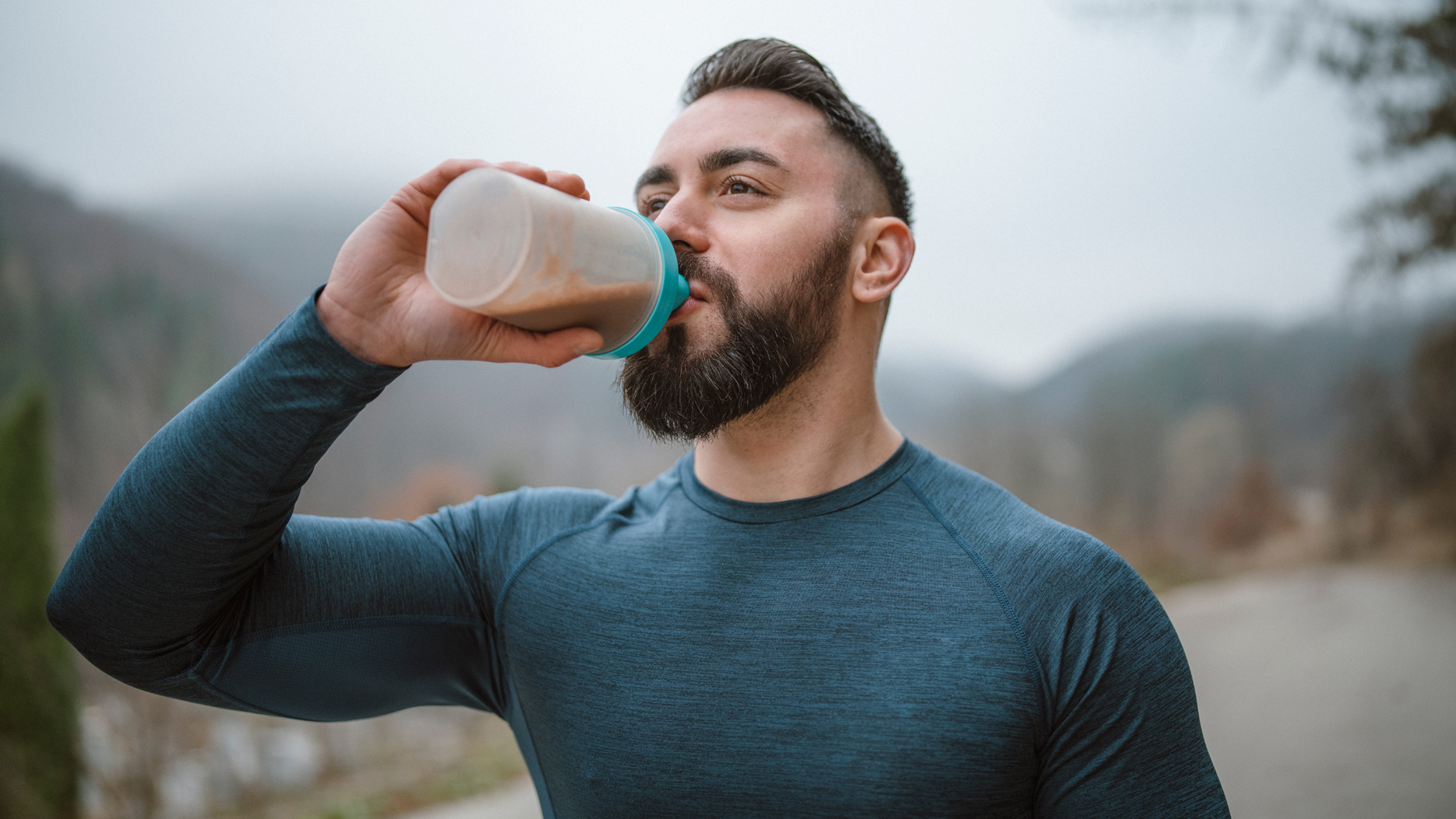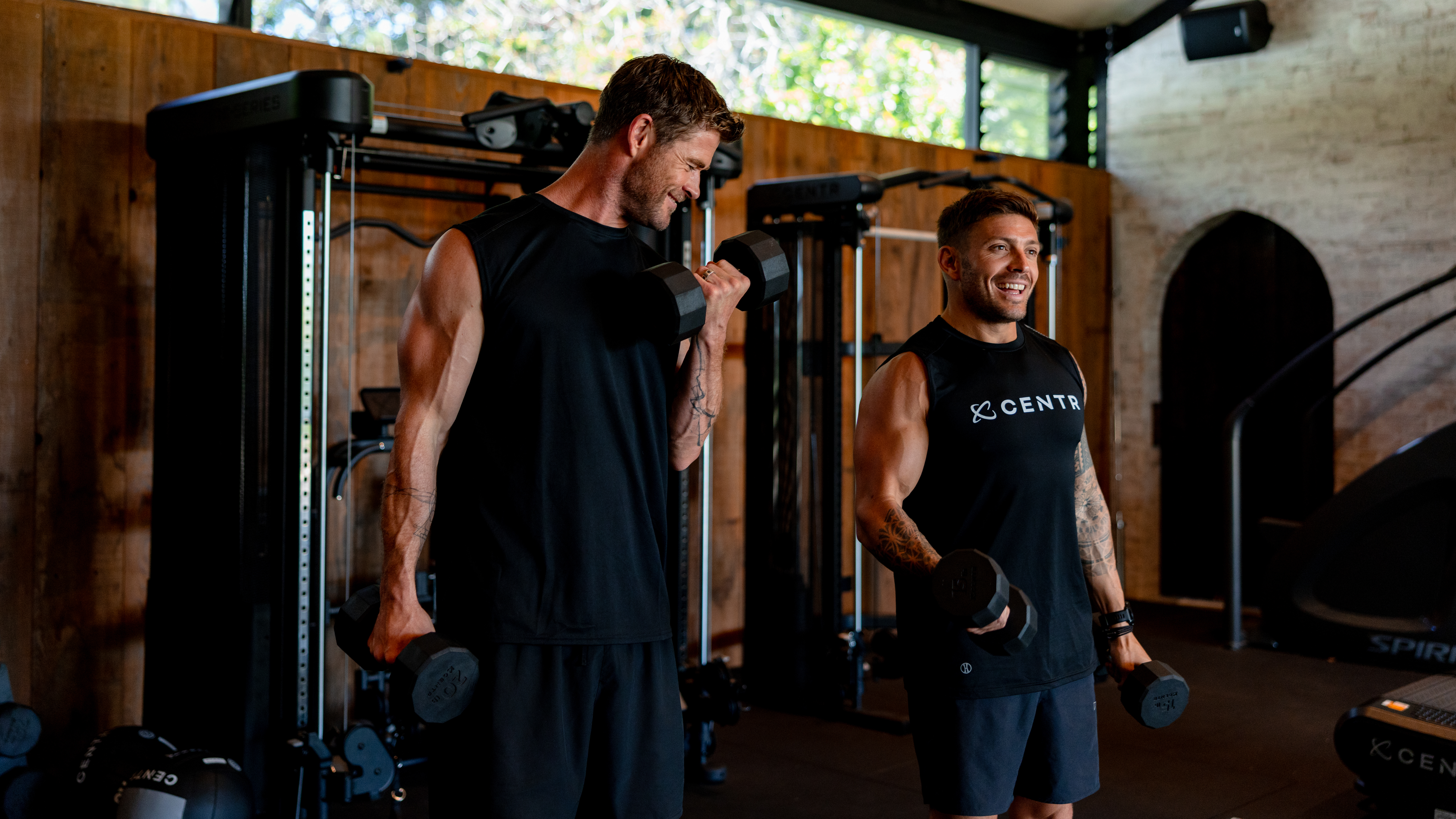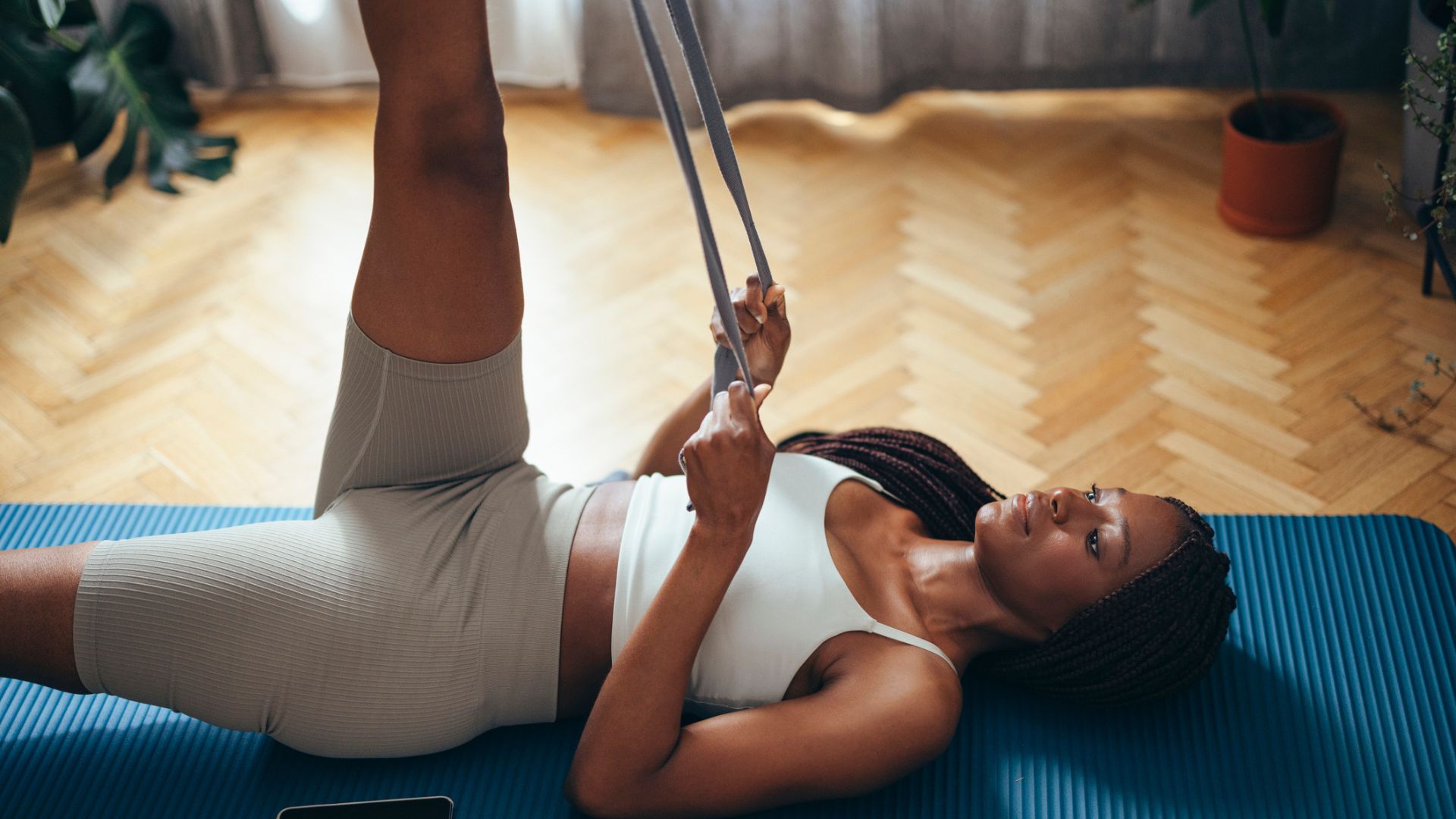Does protein build muscle?
Does protein build muscle? We cover exactly what you need to know when eating to gain muscle


Building muscle is central to a lot of people’s fitness goals. In order to do this efficiently and make lasting gains, you need to pair a rigorous strength training regime with sufficient amounts of protein.
To explain exactly how this works, we chatted with a leading sports nutritionist at HealthSpan Elite, Rob Hobson.
How does protein build muscle?
Think of your muscles as a house that you want to build; protein is the bricks you need to complete this.
"Protein is vital for the functioning of a healthy body," Holly Haywood, personal trainer and resident fitness expert at Innermost explains. "It is also needed for building, maintaining and repairing muscle."
"After consuming protein, enzymes in the stomach and small intestine break them down into chains of amino acids called peptides. Training causes microtears which trigger an immune response involving stem cells and growth hormones that use the amino acids to repair the damage.
"These amino acids are sent to damaged muscle cells to stimulate myofibrils' growth, which are the filaments that makeup muscles. These myofibrils fuse with damaged areas of muscle fibers which is a process that helps to make them bigger and stronger."
How much protein do you need to build muscle?
How much protein you need to help you build muscle depends on your weight, age, and exercise regime.
Get the Fit&Well Newsletter
Start your week with achievable workout ideas, health tips and wellbeing advice in your inbox.
According to an article in the Food & Function journal, the recommended dietary allowance (RDA) of protein for a healthy adult with a minimal physical activity level is currently 0.8 grams of protein per kilogram or 2.2 pounds of body weight per day.
This means a person weighing 75kg (165 pounds) should consume an average of 60g of protein per day. While someone with moderate physical activity should eat 1.3 grams of protein per kilogram and 1.6 grams of protein per kilogram should be consumed by those doing intense physical activity.
However, as highlighted, the amount of protein you should ingest can also depend on your activity level and age.
And it’s not just the amount of protein you take that’s important. “Timing is crucial too,” Hobson says. “It is generally considered that consuming protein shortly after exercise is beneficial for muscle protein synthesis (MPS). Consuming protein after training also facilitates the skeletal muscle adaptive response to each session resulting in more effective muscle reconditioning.”
Does protein build muscle without working out?
The main thing to note here is that your body needs other components to help build more muscle. So don’t only start increasing your protein intake to start seeing muscle growth. If you add more protein to your diet without additional calories and exercise to your daily life, you won’t be doing yourself any favors. Some people also want to know, does protein make you gain weight, and this really depends on how you are balancing your diet with other nutrients.
Hobson said that you won’t notice any huge physical changes unless you’re putting in solid time at the gym. Strength training with weights will boost results but you can also resistance train from home with your own bodyweight or use some of the best resistance bands. With the right balance of training and diet, you can be building muscle as you sleep. Hobson noted, “Your body also uses protein to repair muscles as a result of everyday wear and tear that occurs. A lot of this is done while you sleep as protein synthesis is ramped up.”
Another thing to note is that if you have lost a lot of muscle mass due to illness or perhaps from aging then protein will help to build this back up again.
If you want to find a low-fat, low-calorie supplement to help you build muscle, read our guide on the best protein powders for weight loss.
How to increase your protein intake
To get started you are going to want to familiarise yourself with protein-rich foods, especially those that contain all of the amino acids. Hobson says “Protein foods including meat, poultry, fish, dairy, eggs, and whole sources of soy (tofu, edamame beans, tempeh) contain all the essential amino acids that need to be gleaned from the diet.”
“Plant foods rich in iron include beans, lentils, pulses, nuts and seeds (and soy foods) and you should try to eat a good mix of these foods throughout the day if you are vegan to ensure a good intake of all the amino acids,” he added.
Another way, and perhaps a more convenient option for those who struggle to fit adequate amounts of protein rich foods into their diets, is protein shakes. This is especially beneficial after a workout. If you find a suitable one, like one of the options from our best protein powder for women guide, they often are designed to include a good balance of amino acids.
However, not all sources of protein are created equal. Personal trainer, Haywood says: “Animal-based foods are the main sources of complete protein. Grains, pulses and foods such as tofu also are good for protein for those that don’t eat animal products. While protein powder is a great supplement to boost your intake, if you feel necessary.”
Here are 5 delicious post-workout smoothies that are packed with protein. And if you enjoyed this, find out; do you need carbs to build muscle?
Jessica is an experienced fitness writer with a passion for running. Her career in journalism began in local news and she holds a Masters in journalism. Jessica has previously written for Runners World, penning news and features on fitness, sportswear and nutrition.
When she isn't writing up news and features for Fit&Well covering topics ranging from muscle building, to yoga, to female health and so on, she will be outdoors somewhere, testing out the latest fitness equipment and accessories to help others find top products for their own fitness journeys. Her testing pairs up nicely with her love for running. She recently branched out to running 10Ks and is trying to improve her time before moving on to larger races. Jessica also enjoys building on her strength in the gym and is a believer in health and wellness beginning in the kitchen. She shares all of this on her running Instagram account @jessrunshere which she uses for accountability and for connecting with like-minded fitness lovers.
-
 Build blockbuster arms and abs with Chris Hemsworth's go-to dumbbell circuit
Build blockbuster arms and abs with Chris Hemsworth's go-to dumbbell circuitAll you need are adjustable dumbbells and 20 minutes
By Sam Rider Published
-
 Forget crunches—if I wanted to improve core strength I'd do this neck-friendly Pilates workout
Forget crunches—if I wanted to improve core strength I'd do this neck-friendly Pilates workoutAnd it takes just five minutes
By Maddy Biddulph Published